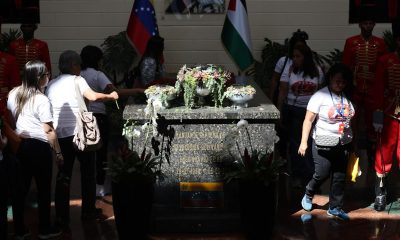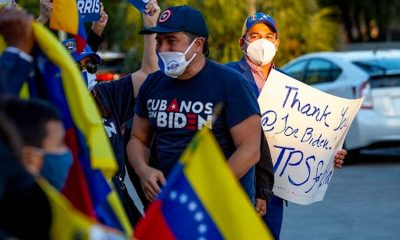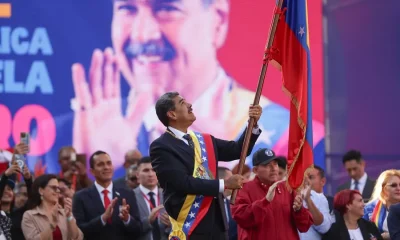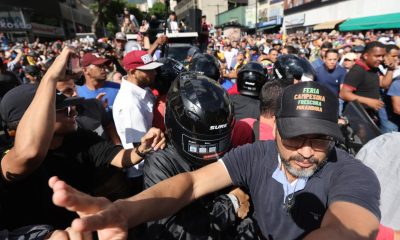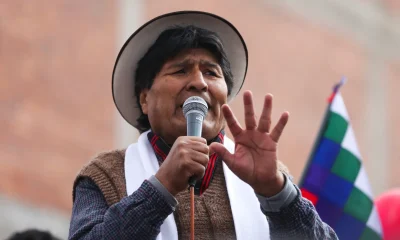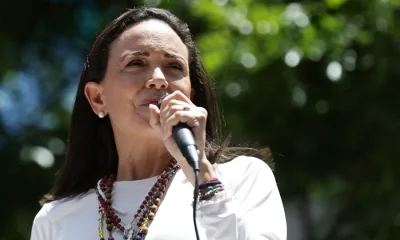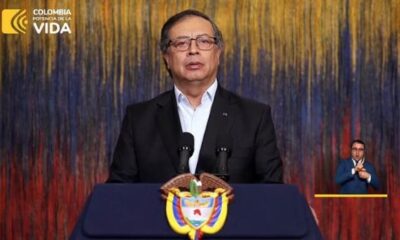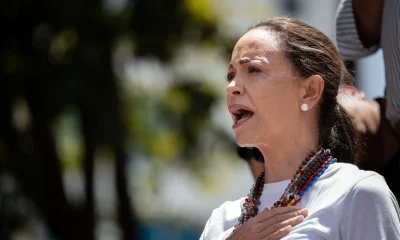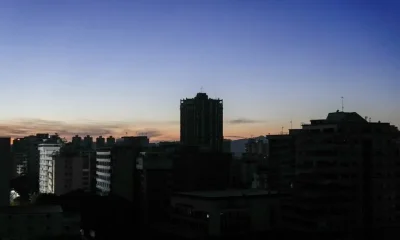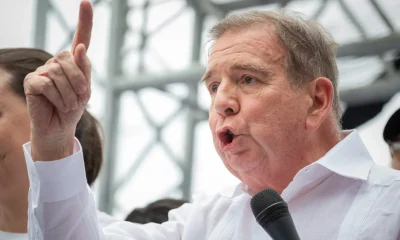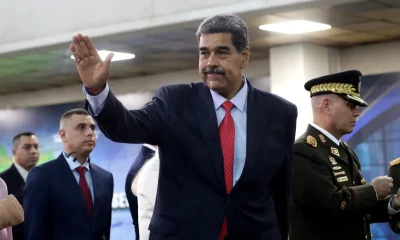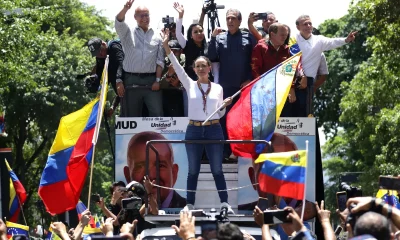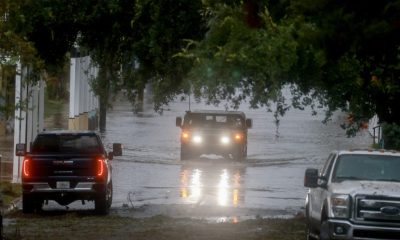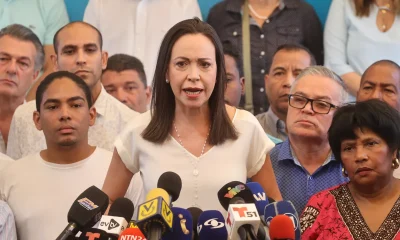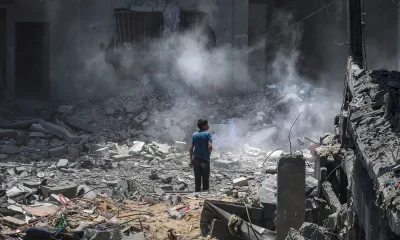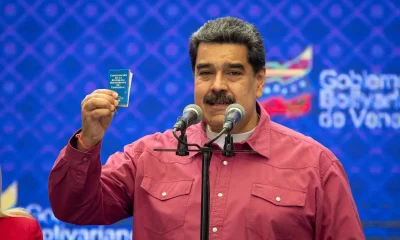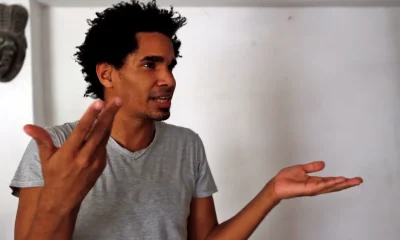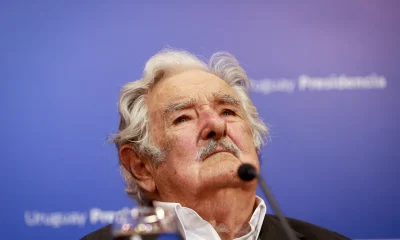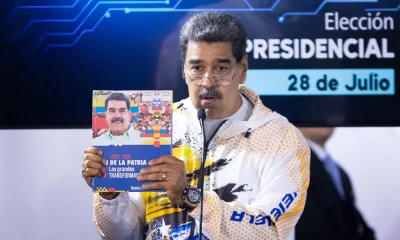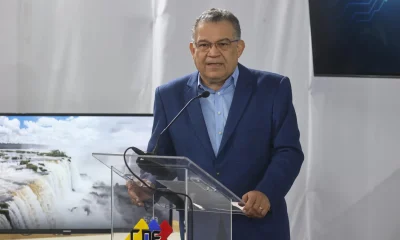International
Cuba and Venezuela reject U.S. Human Rights Report
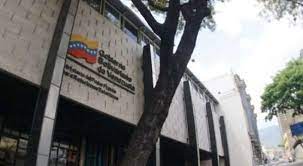
March 21 |
Cuba and Venezuela rejected on Tuesday the most recent report on Human Rights of the United States Department of State (US) while denouncing that Washington uses the issue of human rights as a tool for political expediency.
The Venezuelan Foreign Ministry said through a statement that the U.S. nation “despite maintaining a permanent aggression against the rights of the Venezuelan people, seeks to qualify the actions of other governments”.
The document denounces that the White House “exactly 20 years ago launched one of the most brutal wars in the history of humanity against the Iraqi people, causing hundreds of thousands of deaths, implementing torture methods and using weapons of war against civilians”.
“This only goes to show that, for the U.S. government, human rights are simply a tool it uses for its political expediency, based on distorted narratives.”
In turn, Venezuelan diplomacy affirmed that “once again this report is published to attack sovereign countries, whose decisions are not made with Washington’s consent, while the United States, internally, fails to contain the growing poverty”, among other issues that Caracas denounced.
Likewise, the ministry highlighted that the U.S. has not signed or ratified important agreements such as the Convention on the Rights of the Child; the Rome Statute; the Convention on the Elimination of All Forms of Discrimination against Women; among others.
Finally, the communiqué concludes by expressing that Venezuela, despite the aggressions of the US and its accomplices “continues to defend the economic, political and social rights of the entire population and will continue to comply with its multilateral commitments to guarantee a dignified life for all its citizens”.
For his part, Cuban Foreign Minister Bruno Rodríguez denounced the unacceptable slander against his country in the U.S. government’s Human Rights 2022 report.
He added on his Twitter account that with the shameful record of violations and abuses to its own citizens, the northern nation should refrain from stigmatizing others.
“It tries in vain to disguise its interventionist and interfering behavior,” the Caribbean country’s foreign minister added.
International
Iran Reports 201 Dead, 747 Injured After U.S. and Israeli Strikes

The Iranian Red Crescent Society reported Sunday night (local time) that at least 201 people were killed and 747 injured following attacks carried out by Israel and the United States against the Islamic Republic.
A spokesperson for the humanitarian organization said more than 220 rescue teams have been deployed across affected areas and that relief operations are continuing without interruption. The official highlighted the difficulty of treating the large number of wounded and the urgent need for additional resources in impacted provinces.
Out of Iran’s 31 provinces, 24 have reported damage, according to a statement carried by the Isna news agency. This marks the first overall casualty toll released by Iranian state-affiliated media since the launch of the offensive.
Among the dead are 85 schoolgirls from a school in the southern city of Minab, according to the country’s judiciary. “The number of martyrs at the Minab girls’ school has risen to 85,” the local prosecutor’s office said, as quoted by the judiciary’s website, Mizan Online.
Iranian President Masud Pezeshkian described the attack as a “savagery” that “constitutes a new black page in the record of countless crimes committed by the aggressors.”
Meanwhile, the international community continues to monitor the situation closely amid concerns about possible further reprisals and the broader impact on Middle East stability, energy markets, and global security.
AFP noted that it was unable to independently verify the casualty figures or the circumstances surrounding the events.
International
Pope Leo XIV Urges End to ‘Spiral of Violence’ in Middle East

Pope Leo XIV on Sunday called for an end to the “spiral of violence” in the Middle East, following military strikes by the United States and Israel against Iran and subsequent retaliatory bombardments in the region.
“Faced with the possibility of a tragedy of enormous proportions, I urge the parties involved to assume their moral responsibility and stop the spiral of violence before it becomes an irreparable abyss,” the pontiff told the crowd gathered in St. Peter’s Square at the Vatican.
Speaking during the Angelus prayer, the U.S.-born pope said stability and peace cannot be achieved through threats or weapons. “Stability and peace are not built with reciprocal threats or with arms that sow destruction, suffering and death, but only through reasonable, sincere and responsible dialogue,” he declared.
The leader of the world’s 1.4 billion Catholics also called for diplomacy to “regain its role” amid escalating tensions.
In addition, the pope urged Afghanistan and Pakistan to urgently resume dialogue after several days of clashes between the two countries.
International
Security Council to Hold Emergency Meeting on Middle East Crisis

UN Secretary-General António Guterres on Saturday condemned the “military escalation in the Middle East” following attacks by the United States and Israel against Iran and Tehran’s retaliatory strikes, just hours before an urgent meeting of the UN Security Council.
“I call for the immediate cessation of hostilities and de-escalation,” Guterres said in a statement.
The Security Council is scheduled to meet on Saturday at 21:00 GMT (4:00 p.m. in New York) to address “the situation in the Middle East,” the United Nations announced.
The meeting, during which Guterres will deliver remarks, was convened at the request of France, Bahrain, Colombia, Russia and China, according to a diplomatic source.
-

 International5 days ago
International5 days agoFamily of “El Mencho” Seeks Return of Body After Deadly Military Operation
-

 International5 days ago
International5 days agoLarry Summers Steps Down from Harvard Role Amid Epstein Controversy
-

 International5 days ago
International5 days agoIran’s President Optimistic Ahead of Geneva Nuclear Talks with U.S.
-

 International5 days ago
International5 days agoBill Gates Admits “Serious Mistake” Over Epstein Ties
-

 International5 days ago
International5 days agoStephen Hawking Photo Appears in Newly Released Epstein Documents
-

 International4 days ago
International4 days agoCocaine Production Surges 34% in 2023 as Market Expands into Africa and Asia
-

 International3 days ago
International3 days agoTrump Floats “Friendly Takeover” of Cuba Amid Rising Tensions
-

 International21 hours ago
International21 hours agoIran Reports 201 Dead, 747 Injured After U.S. and Israeli Strikes
-

 International4 days ago
International4 days agoFederal Judge Blocks Trump Policy Allowing Deportations to Third Countries
-

 International3 days ago
International3 days agoArgentina’s Senate Reviews Milei-Backed Labor Overhaul
-

 International2 days ago
International2 days agoSecurity Council to Hold Emergency Meeting on Middle East Crisis
-

 International21 hours ago
International21 hours agoPope Leo XIV Urges End to ‘Spiral of Violence’ in Middle East
-

 Sin categoría2 days ago
Sin categoría2 days agoTrump: ‘We Think It’s True’ Amid Claims Iran’s Supreme Leader Was Killed
-

 International4 days ago
International4 days agoClinton Accuses Republican Committee of Using Epstein Case to Shield Trump































